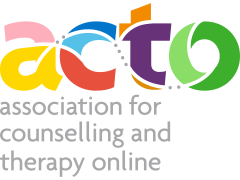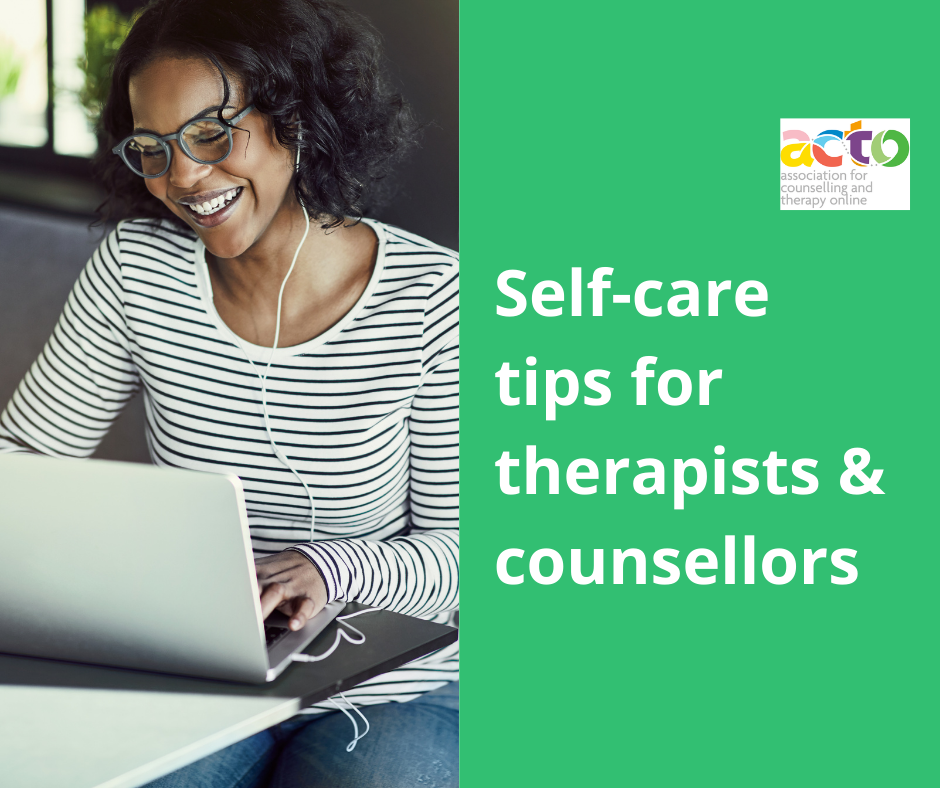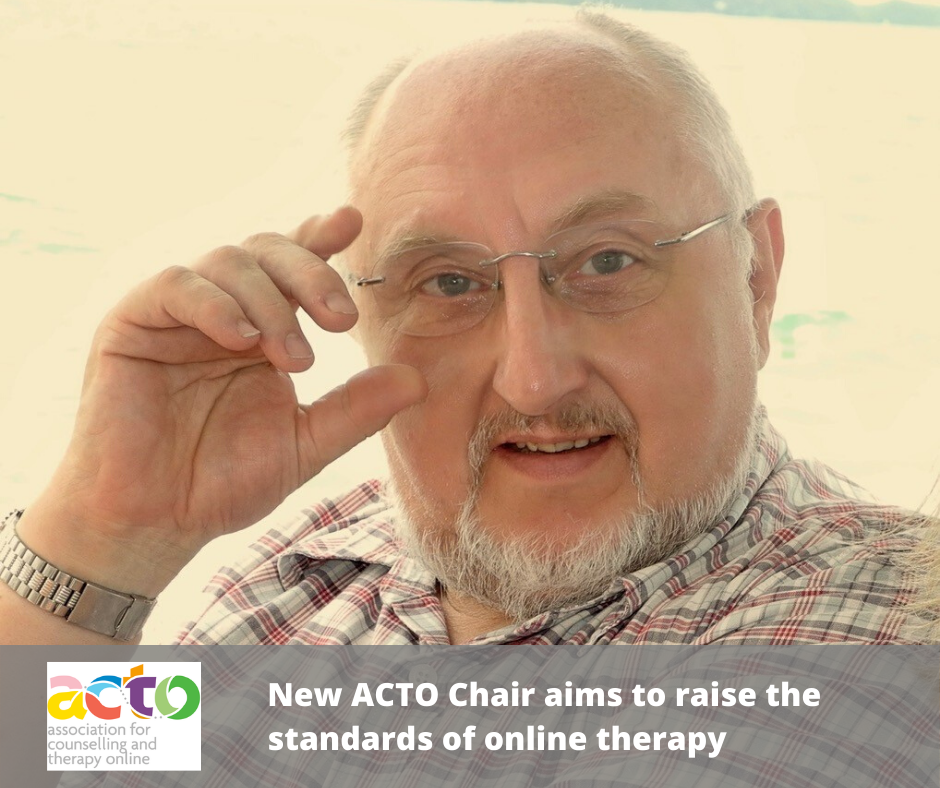ACTO members Jan Stiff and Sarah Worley-James offer some practical advice to therapists and counsellors coping with increased workloads and the complexities of added stress caused by moving from providing face to face to online therapy
Recently we shared to our Facebook page an article written by a therapist, Katerina, who is coming to terms with the significant increase in demand for moving to providing online therapy initiated by the recent COVID pandemic.
The issues raised in the article are of course extremely pertinent ones at this time. So, we thought we would share some of our observations, and some suggestions for online therapists and counsellors to help them with their own self-care.
Firstly it is good to see a blog published on this matter – and one which is openly spoken about. After all, like our clients, we too are human beings struggling with the myriad ways that the COVID-19 pandemic is affecting us personally, as well as professionally.
Let us now consider some of the points made by Katerina – and offer our thoughts.
- The power of online therapy to enable a new kind of creativity, safety and emotional intimacy.
That sense of “power” that can be interesting for some but equally disarming and frightening for therapists without appropriate training, experience and online supervision.
- The importance of therapists having their own space set aside for online therapy
Coping with everyday things such as eating and sleeping can be difficult if this is the same space that you undertake your online therapy.
The inappropriateness of not having a sacred space – set aside for online therapy – a space that is safe and confidential and that can be “walked away from” as if locking the office door – can pose a challenge which then impinges negatively on a therapists life and personal space.
- The feeling that our profession is not getting any recognition or support
This is a concern for many of us in the profession; comments have been made that therapists have been “forced” to provide online therapy. The increasing effects of COVID and what therapist have “had” to endure (they feel they have had little choice in most cases and need to continue to work to bring in money) are concerning – and is deserving of further debate.
- Not having an opportunity to say goodbye to clients as a result of end of face-to-face contact
Again, the need for training and appropriate supervision comes to mind here – and the option for therapists to acknowledge that moving to providing online therapy might not be an option that they want to move towards. During support sessions for face to face therapists “forced” to move to working online – mainly school counsellors – one message I [Jan] shared was that they knew the client best and they knew what they needed.
Also they, as that clients therapist had the autonomy to communicate their concerns with either the schools, training bodies or professional bodies to say that they did not feel competent to practice online if they did not feel it was benefiting their clients. For instance, many were “forced” to provide telephone support because that was deemed “safer” but of course, the lack of ability to make visual assessments caused great concern for some therapists – understandably so.
Within support sessions and teaching we share the following as a way of assessing your needs as a therapist, working online and face to face – it can highlight areas of concern that a therapist, especially one practicing online, might not be aware of.
Building resilience
Research has shown that vicarious trauma within therapists is related to workload and support. Of course individual therapist resilience is also a part of this.
We love this and therapists that it has been have shared with have sometimes been left in awe with how this highlights individual self-care needs, blind spots and issues leading to burnout.
This website has some great info:
https://proqol.org/Home_Page.php
Fun activities are important too!
And finally there are some simple things too. Fun activities which can help us all to relax away from our work.
Finding those small moments in the day to take care of ourselves.
That cup of tea sipped whilst listening to relaxing music, a few minutes to colour in a colouring book, do a jigsaw, cook something new. Encouragement to focus on noticing those small actions that give a message ‘I’m worth taking care of’. Focusing on gaining a balance, which may look very different to the pre lockdown one, while appropriate to life right now.
All of these may help.
Jan Stiff, online counsellor and supervisor
Sarah Worley-James, online counsellor and supervisor



